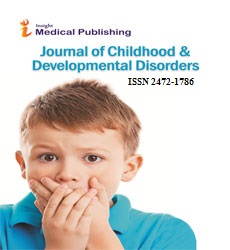Abstract
Autism in the eye of the beholder. A Hedgehog or a Cactus?
While there are many assessments, support systems and practices in place established over the years for autistic children they have been focused on the child exclusively. An admirable campaign on public education has been launched to help for some adjustments and exceptions to be made at schools and promote the settling of a culture of more acceptances. Still, it does not require people to take personal responsibility which still lies with the autistic person. I propose that society’s mindset need to change and urgently. Parents need fresh eyes, and a new perspective that can add another piece of the impossible puzzle they are solving every day but solutions come naturally only when the questions are clear. An autism therapy is only possible if it’s applied to the collective. We need to understand that autism is not cases of isolated, unfortunate incidents but a collective phenomenon. The change starts from parents who are open to learn how to manage their own personal space and emotional balance introducing some unconventional concepts such as:
Emotional Skin Deficiency (ESD) - challenges and benefits Autistic differences in perceptions - physical, visual, sound, time, etc.
Emotional Hygiene for everyone
Multi-Level Communication
Energy differences and effective management
Nutritional adjustments in support of the internal autistic structure.
It’s the immediate circle of family members and teachers that have to learn new ways of thinking, feeling and responding. We all have to share the responsibility and learn to control our minds and emotions first, before imposing it to others.
Author(s):
Asia Dimitrova
Abstract | Full-Text | PDF
Share this

Google scholar citation report
Citations : 504
Journal of Childhood & Developmental Disorders received 504 citations as per google scholar report
Abstracted/Indexed in
- Google Scholar
- China National Knowledge Infrastructure (CNKI)
- Directory of Research Journal Indexing (DRJI)
- WorldCat
- Publons
- Geneva Foundation for Medical Education and Research
- Secret Search Engine Labs
- Euro Pub
Open Access Journals
- Aquaculture & Veterinary Science
- Chemistry & Chemical Sciences
- Clinical Sciences
- Engineering
- General Science
- Genetics & Molecular Biology
- Health Care & Nursing
- Immunology & Microbiology
- Materials Science
- Mathematics & Physics
- Medical Sciences
- Neurology & Psychiatry
- Oncology & Cancer Science
- Pharmaceutical Sciences

